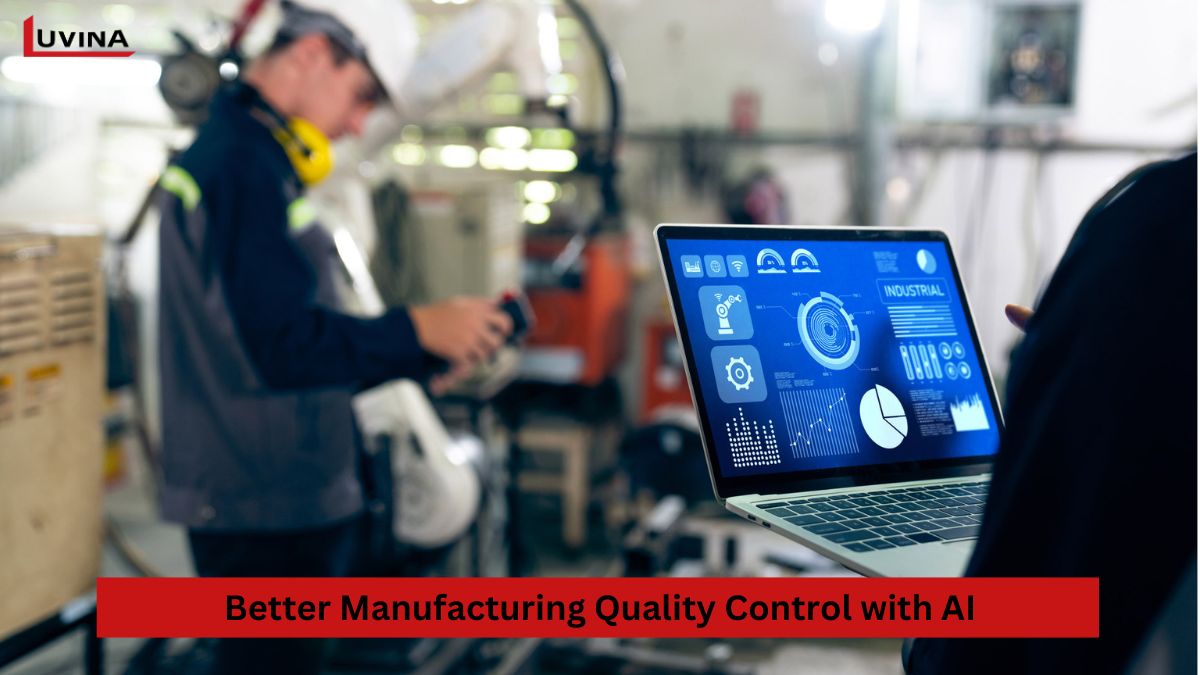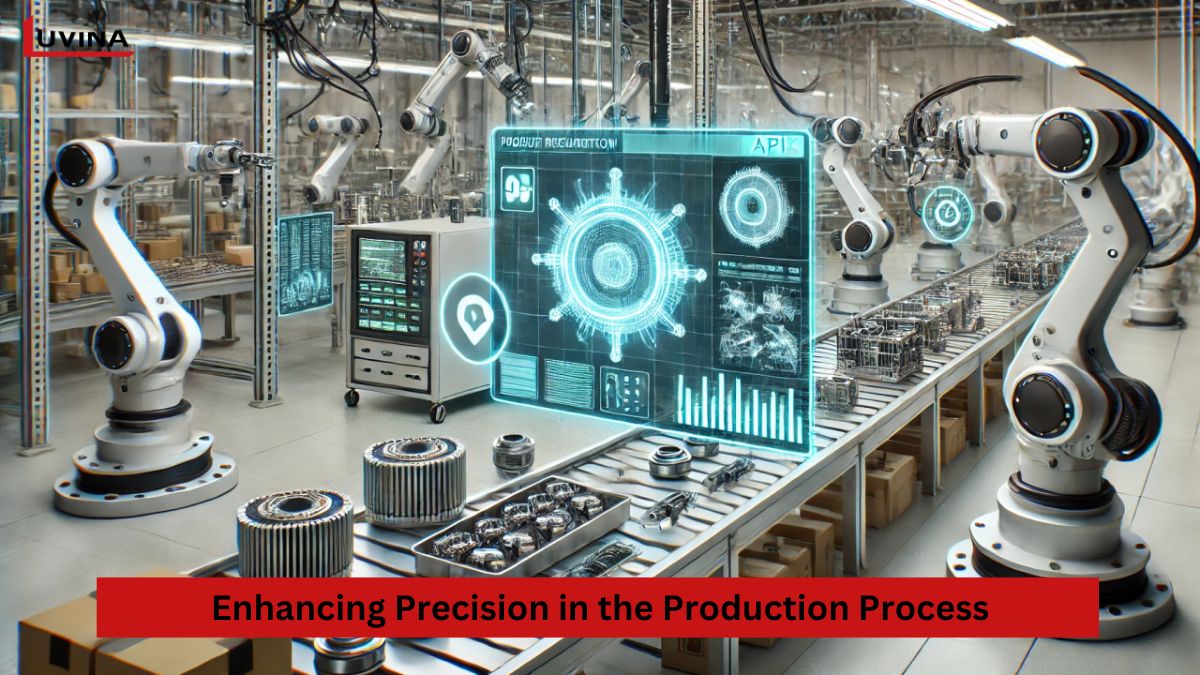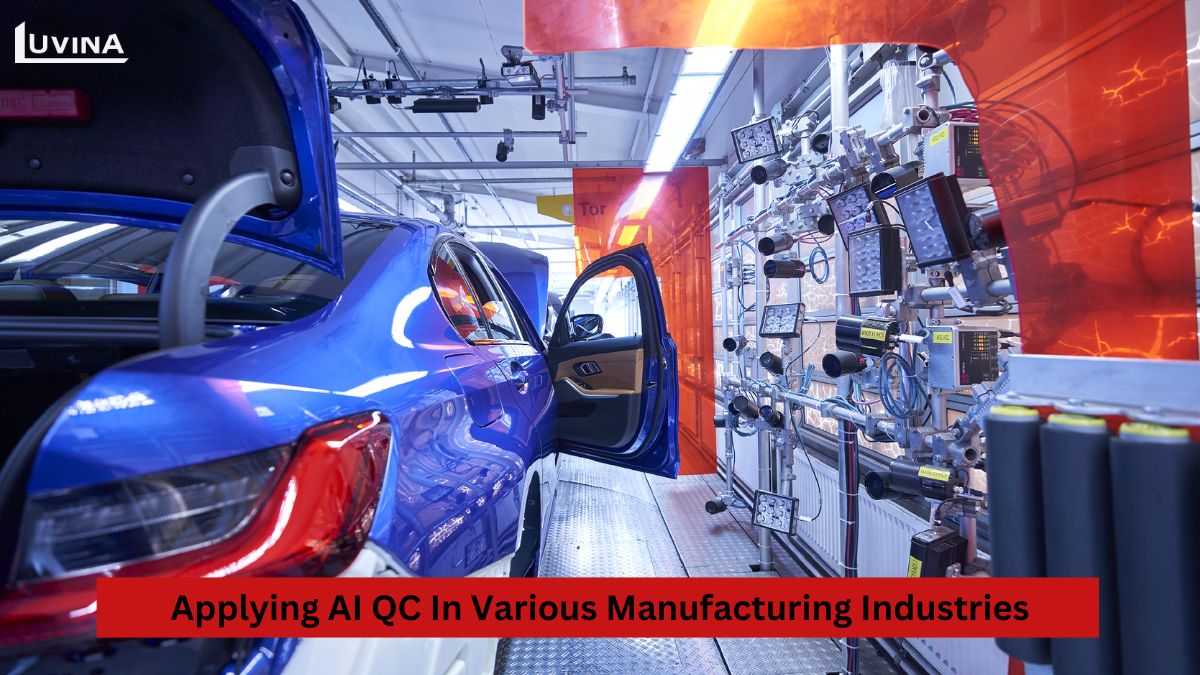In manufacturing, product quality, safety, and reliability are always top priorities. That’s why, as production processes become more complex, AI for manufacturing quality control is getting a lot of attention. With AI’s help, manufacturers can quickly identify defects and reduce waste, although integrating AI also brings challenges related to investment, integration, and training.
According to Gartner, by 2025, 50% of manufacturers will rely on AI-driven insights for quality control. In this article, let’s explore the benefits AI can bring to quality control for manufacturing companies and look at some examples of AI applications in quality control. This information will give you more reasons to start using AI for quality control in manufacturing soon.
Benefits of using AI for quality control in manufacturing
The application of AI for manufacturing quality control has proven to bring significant advantages to companies in this field. By using AI for quality checks, manufacturers receive real-time data and analysis on the production process. For example, AI systems equipped with computer vision can continuously monitor and analyze products during production, speeding up inspections and increasing accuracy. Unlike human teams, AI algorithms can detect even the smallest defects with very high precision.

In addition, AI enables manufacturers to predict potential issues before they arise. By skillfully combining AI with digital twins, companies can simulate production scenarios and optimize processes to ensure higher production efficiency and reduce downtime. Here are some other key benefits of applying AI for manufacturing quality control:
- Reducing human error: Human workers may overlook issues due to fatigue, rush, or work pressure. In contrast, a well-trained AI QC system can detect even the smallest faults, allowing staff to take corrective actions. When AI is combined with human labor in production, companies can identify extremely hard-to-detect product defects.
- Enhancing brand reputation: Customers expect high-quality products and defective goods can lead to unnecessary disappointment and poor reviews. By using AI for manufacturing quality control, product defects are identified before they reach customers. This results in a higher percentage of flawless products delivered to customers, creating a better impression of the brand.
- Meeting regulations: Many components and products in manufacturing must meet strict regulatory standards, and AI helps companies achieve this accurately by flagging any compliance or other issues.
- Reducing waste: AI and machine learning help prevent faulty components from moving further down the production line. Catching these issues early minimizes rejected products due to poor-quality parts, reducing waste for manufacturers.
- Maintaining conditions: AI for manufacturing quality control is also used to monitor environments, ensuring products are stored under optimal conditions and transported safely. For example, AI can monitor storage temperatures to prevent goods from being damaged.
Use cases & examples for AI in manufacturing quality control
There are many ways to apply AI for manufacturing quality control, and each business may have different applications suited to its industry type. Here are some potential use cases for AI in quality control.

- Ensuring consistency: Since supply chains and manufacturing are complex and product quality can vary greatly depending on materials, suppliers, and other factors, AI and machine learning can combine data, identify patterns that lead to lower-quality inputs, and ensure consistency in product quality.
- Analysis: In manufacturing, many issues are one-time accidents, but others are recurring problems. The ability of AI for manufacturing quality control is to analyze and highlight these patterns, helping staff create models to solve similar basic issues in the future.
- Forecasting supply and demand: To make sure the company always has enough materials to produce goods and meet customer demand, manufacturers need accurate supply and demand forecasting. AI can model delivery times and potential market demand, helping manufacturing businesses avoid supply chain delays and maintain enough stock for sale.
- Integration with automation: Manufacturers can integrate their current quality control system with automation and robots to improve both scanning speed and the speed of deciding whether to accept or reject products. This QC system can be used to reroute defective items, send quality-assured items to robots for packaging, and deliver completed products.
Many major brands across manufacturing sectors have already adopted AI for quality control. A key example is BMW. BMW currently uses automated image recognition technology where AI compares images of parts in production with hundreds of other images in milliseconds. This real-time evaluation allows BMW to detect deviations from standards, ensuring all parts are complete and correctly assembled.
AI-based applications are also flexible and cost-effective, gradually replacing fixed camera gates at the company. To build a database for AI, BMW employees capture images of components from various angles using standard mobile cameras, marking potential deviations directly on the images. This way, AI can evaluate images without human intervention.

Another example of AI for manufacturing quality control is Intel. The company has integrated computer vision and machine learning technology into its chip fabrication lines to create an online inspection system. This system enables Intel to detect defects and tool issues much earlier than traditional offline inspection processes. Additionally, it offers extremely high accuracy, spotting defects as small as micrometers that are hard to see, even with microscopes. If a defect is detected, Intel’s quality control system can trigger an alarm or even halt the tool. This quality control system helps Intel reduce scrap and saves the company up to $2 million each year.
Conclusion
No longer a futuristic concept, AI for manufacturing quality control is transforming the manufacturing industry by delivering speed, accuracy, and automation capabilities that traditional methods cannot match. As technology continues to evolve, the role of AI in quality control will become even more prominent, reinforcing its position as a foundation for modern production processes.
If you’re looking to revolutionize your manufacturing process with AI applications, Luvina will partner with you every step of the way. With expertise in AI implementation and integration, Luvina can help you harness the power of advanced technology to enhance product quality, boost efficiency, and reduce costs. Contact Luvina today to discover how we can integrate AI for manufacturing quality control tailored to your business needs.
Related Posts:
- Top Artificial Intelligence Development Companies
- AI POC: Effective AI Testing Solutions for Businesses









Read More From Us?
Sign up for our newsletter
Read More From Us?
Sign up for our newsletter